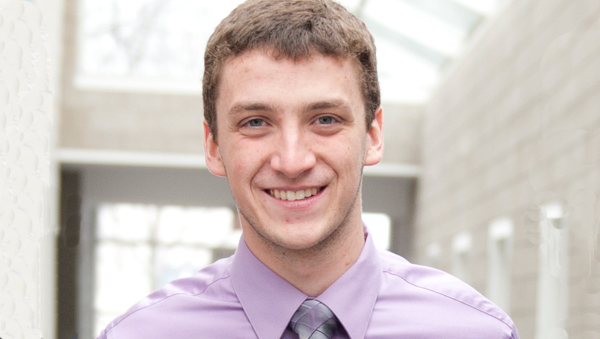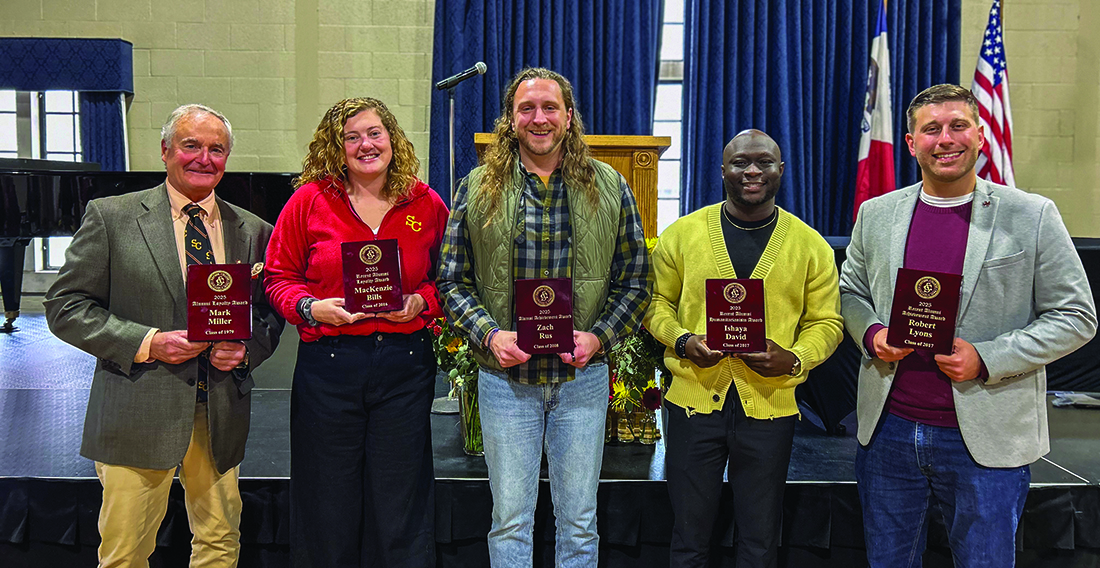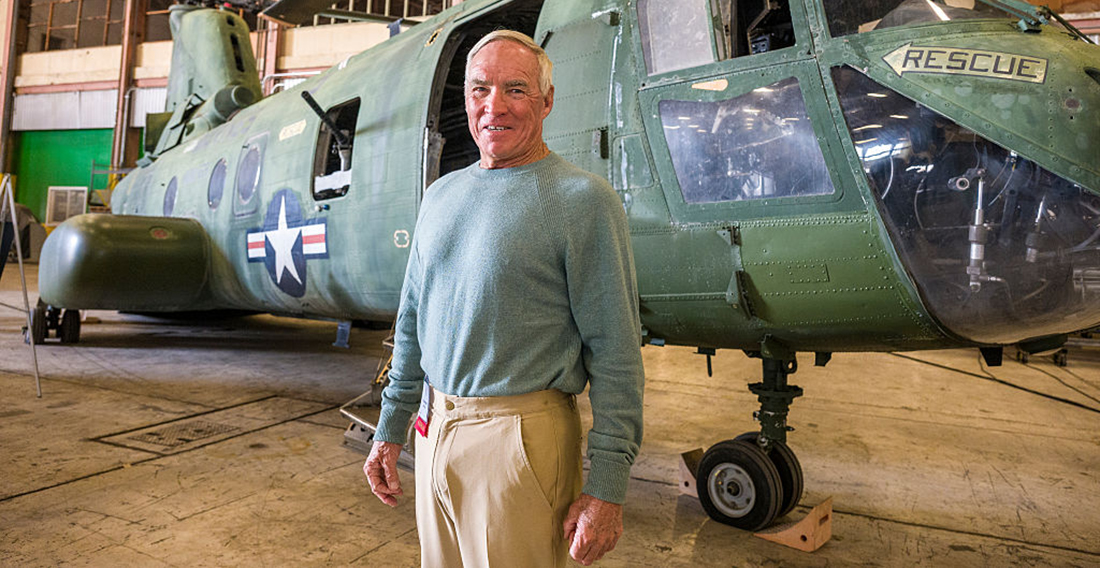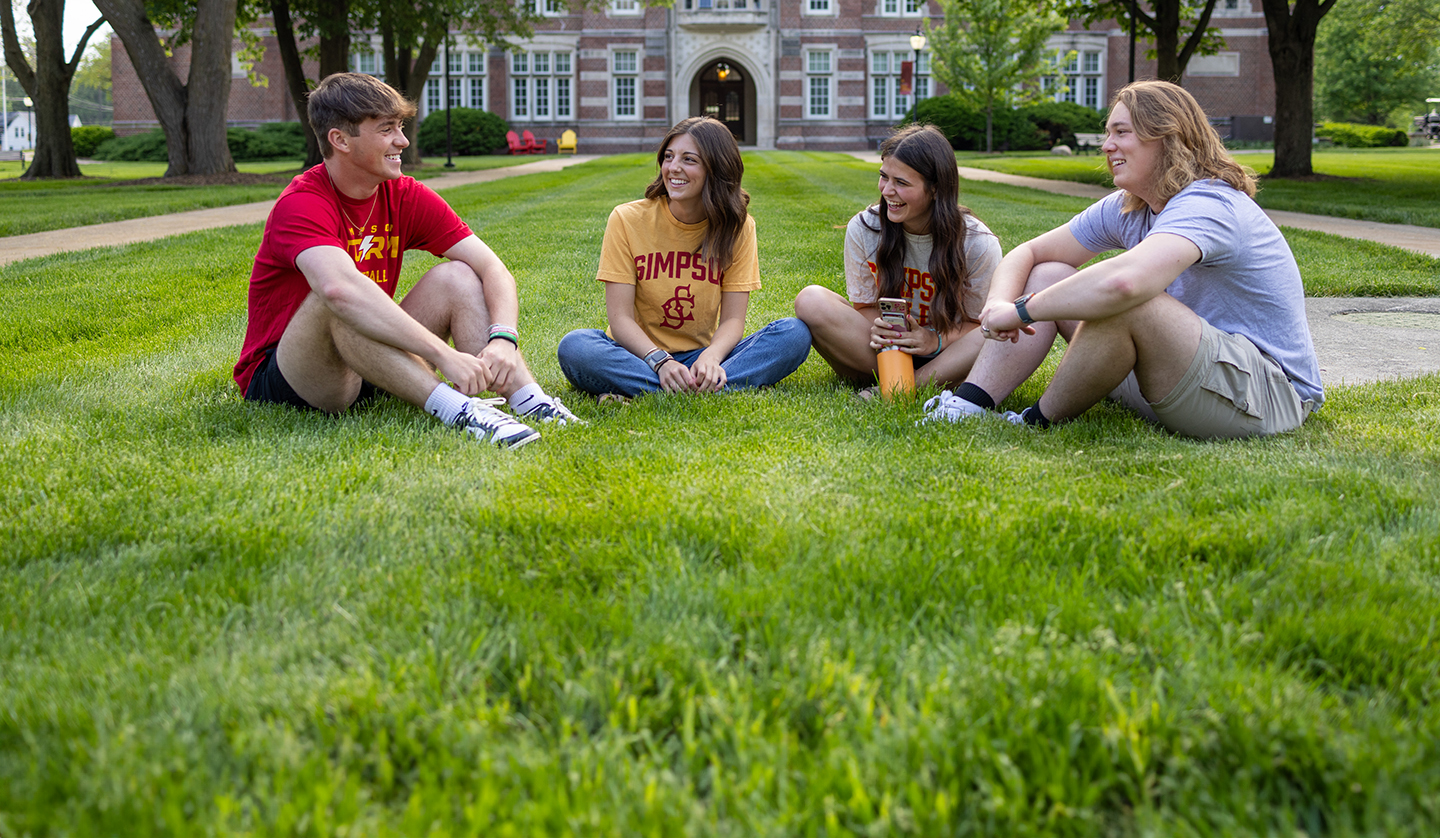Stephen Henrich, Rhodes Scholar Finalist and ’13 Alum

So what’s it like to be a Rhodes Scholar finalist?
This seemed like a great time to check in with Stephen Henrich ’13, who recently earned that honor. He currently is a second-year medical student and PhD. candidate at Northwestern University.
Q. When did you decide to apply for a Rhodes scholarship? What is the process like?
A. I decided to apply for the scholarship around April this past spring. The Rhodes application in the United States requires a 1000-word personal statement, a condensed resume, and eight letters of recommendation. Each applicant must also be endorsed by their undergraduate or graduate institution; so at larger schools, there is an internal selection process before the Rhodes committee even sees the application. After the endorsement and the October 1st deadline, finalists are announced at the end of October and invited to interview in November. My Saturday interview was preceded by a cocktail party on Friday night where we were able to mingle with the committee members. The interviewing committee always consists entirely of previous Rhodes Scholars with the exception of the committee head, so it was a unique experience to have the opportunity to meet with them. My committee included a former president of the NAACP, a State Department official who worked under Hillary Clinton, and a district chief judge who denied ACLU motions in Ferguson.
Q. Was there something specific about studying in England that appealed to you regarding your current coursework — in other words, something you really hoped to dig deeper into?
A. I applied to study the History of Science, Medicine, and Technology at Oxford, which hosts one of the oldest such programs in the world. Both Oxford and London are home to many historical museums and research centers, so it would have been an exceptional place to dig deeper into the history of science and medicine.
Q. Was going through the process helpful to you?
A. The application process was certainly long and arduous. But the whole thing — writing the essay, reconnecting with my professors, working with Northwestern’s fellowships office and preparing for the interview — all helped me to clarify a vision of my future career and how I would like to make an impact.
Q. Are you still on a track to become an MD and a PHD? What are you looking at in terms of your dream job or career?
A. I am in my second year of the MD/PhD program at Northwestern, so I will be finishing my pre-clinical years of medical school this spring and starting my research work in the lab next fall. My dream career (which may be refined over time) is to be a true chimera: both researcher and clinician. I hope to run a research laboratory that investigates the mysteries of disease while simultaneously working to develop new treatments for my patients.
Q. How do you like Northwestern? Did you get a chance to watch any of the Northwestern-Notre Dame football game (which Northwestern won in a big upset)?
A. Northwestern has been great so far! I really like that our curriculum is broken down by organ system, and the nanotechnology faculty here are conducting really top-notch research. Chicago is also an exciting place to live, and the food is great. I didn’t get a chance to watch the NU-Notre Dame game but I saw the highlights. We’ve been pretty inconsistent this season but that was a good win for the ‘Cats.
Q. Several members of Simpson’s faculty wrote letters on your behalf and can’t say enough great things about you. Was it nice to know that you had Simpson’s backing during all of this?
A. It was always a comfort knowing that I had the support of Simpson professors throughout the process. I was glad that I didn’t have a difficult time finding eight recommenders who knew me well, which can sometimes be a significant obstacle. I had a lot of encouragement and I wish I could have been successful at the final stage.
Q. What do you miss most about being on the Simpson campus?
A. Some of the things I miss most about Simpson are late night study parties in Carver, the Christmas choir concert in the chapel, math modeling competitions, intramurals, and just walking around campus in the fall amidst all the maple trees.
Q. How many finalists were there? Is there a chance you could apply again next year?
A. There were 12 finalists in my district and two were selected to become Rhodes Scholars. There are 16 districts in the United States for a total of 32 scholars each year, usually selected from a pool of well over 1,000 applicants. Unfortunately, there is an age limit so I wouldn’t be able to apply again. But Rhodes is only one of many paths to graduate study in the UK, so I might find another way to cross the Atlantic later in my career if I have an interest.
Article Information
Published
February 25, 2019
Author
Office of Marketing and Strategic Communication




